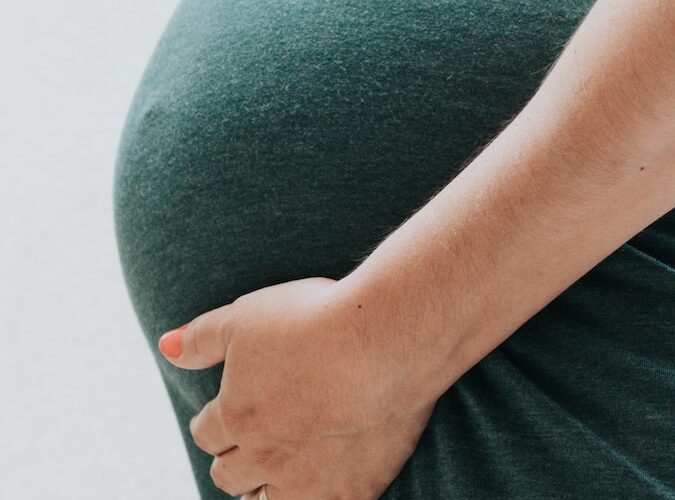During pregnancy, some women feel pressure on their pelvis or lower abdomen. This is caused by increased blood flow in the area due to hormonal changes.
This can lead to pain during sex. However, it’s not harmful for the baby and is not a sign of any serious condition.
It’s normal
Although painful sex during pregnancy can be alarming, especially for first-time mothers, it’s usually nothing to worry about. Pain after sex can be caused by a number of different factors, including the hormone relaxin that is released during pregnancy. This hormone loosens the muscles in your pelvic area, leading to a feeling of pressure or heaviness.
Another reason for painful sex is round ligament pain, which occurs when the cord-like structures that connect the front of the uterus to your groin and pelvic floor stretch as your baby grows. This can make sex uncomfortable in certain positions, but is not harmful to your unborn child.
It’s important to be honest with your partner about your sex pain. This can help you find a solution and make sex more enjoyable. Try experimenting with different positions, oral sex or lubricants to see what works best for you.
In rare cases, pelvic pain after sex may actually be labor contractions, so it’s important to talk to your practitioner if these cramps are persistent or accompanied by other signs of early labor such as heavy bleeding or painful, burning urination. However, most of the time pelvic pain after sex during pregnancy is due to normal pregnancy-related changes and shouldn’t be a cause for concern. If you’re still concerned, your healthcare provider can run tests to determine what is causing your discomfort.
It’s not harmful to the baby
Women who are pregnant may be worried that pelvic pain after sex is harmful to the baby. However, it’s important to remember that this is completely normal and not a cause for concern. In fact, it can be a good sign that the uterus is growing and putting pressure on the surrounding organs.
The feeling of pelvic pressure is caused by the shifting and expanding uterus, as well as increased blood flow to the area. This pressure is often exacerbated by sexual activity, since the hormonal changes can cause the pelvic vessels to dilate. This can lead to a burning sensation or discomfort.
In addition, some women may experience pain from the round ligaments, which are a pair of cord-like structures that connect the front of the uterus to the groin. These can also be aggravated by sexual activity, as the hormones cause the muscles in the area to tighten and stretch.
Other reasons for pelvic pressure include a yeast infection and vaginal irritation. Both of these issues can be a result of pregnancy hormones, which create an imbalance that leads to the growth of yeast (called candida) in the vagina. Yeast infections and vaginal irritation can be painful during intercourse, particularly when they occur in the second trimester of pregnancy.
Finally, pelvic pressure can also be a result of the uterus’s increased weight as it grows from the size of an orange to the size of a watermelon. This is the main reason that some women feel a heaviness in the pelvic area during and after sex.
It’s not a sign of a serious condition
If you are pregnant, you may experience pelvic pressure after sex, which can feel like a heavy weight inside your body. This is caused by the enlargement of the veins and blood vessels in the pelvis due to pregnancy. While this is normal, it can be painful during sex.
The pain may also be caused by a urinary tract infection (UTI) or a yeast infection, which are more common in pregnant women. Both can cause pain and a burning sensation during intercourse. You should tell your OB/GYN about these symptoms and get treatment right away.
You should also discuss any other symptoms you are experiencing with your doctor, including bleeding or cramping after sex. These could be signs of a serious condition, such as preterm labor or cervical incompetence. These conditions can be dangerous for both the mother and baby, so it’s important to seek medical attention immediately if you are experiencing them.
Another reason for pelvic pain after sex is a varicose vein in the vulva, which is normal in pregnancy. The enlarged veins can cause a feeling of pressure during sex, but they will return to normal after delivery.
It’s an emotional experience
Pain after sex during pregnancy is not only physically uncomfortable, but it can be very emotionally upsetting. It can be difficult to feel that way about something that should be enjoyable, but it’s important to remember that this is normal. In many cases, the discomfort is due to a change in blood flow and pressure from the weight of the uterus and baby.
In other cases, the pain is caused by enlarged veins in the pelvic area or on the vulva due to hormones and an increase in blood flow during pregnancy. This is a condition known as vulvodynia, and it can cause chronic pain in the vulva and vagina. It can also be caused by certain infections, including genital warts and herpes sores, or by injuries to the vulva from previous surgery or childbirth.
If the pain is severe or accompanied by bleeding, it’s important to seek medical attention immediately. This may be a sign of a more serious problem, such as preterm labor or an infection. Luckily, there are steps you can take to reduce the discomfort. These include using a water-based lubricant, changing positions during intercourse, and taking it slowly. You can also try using pillows for support and engaging in regular pelvic floor exercises. In addition, it’s important to talk openly with your partner about the pain you are experiencing and to find ways to make sexual intimacy more comfortable for both of you.
See Also:



